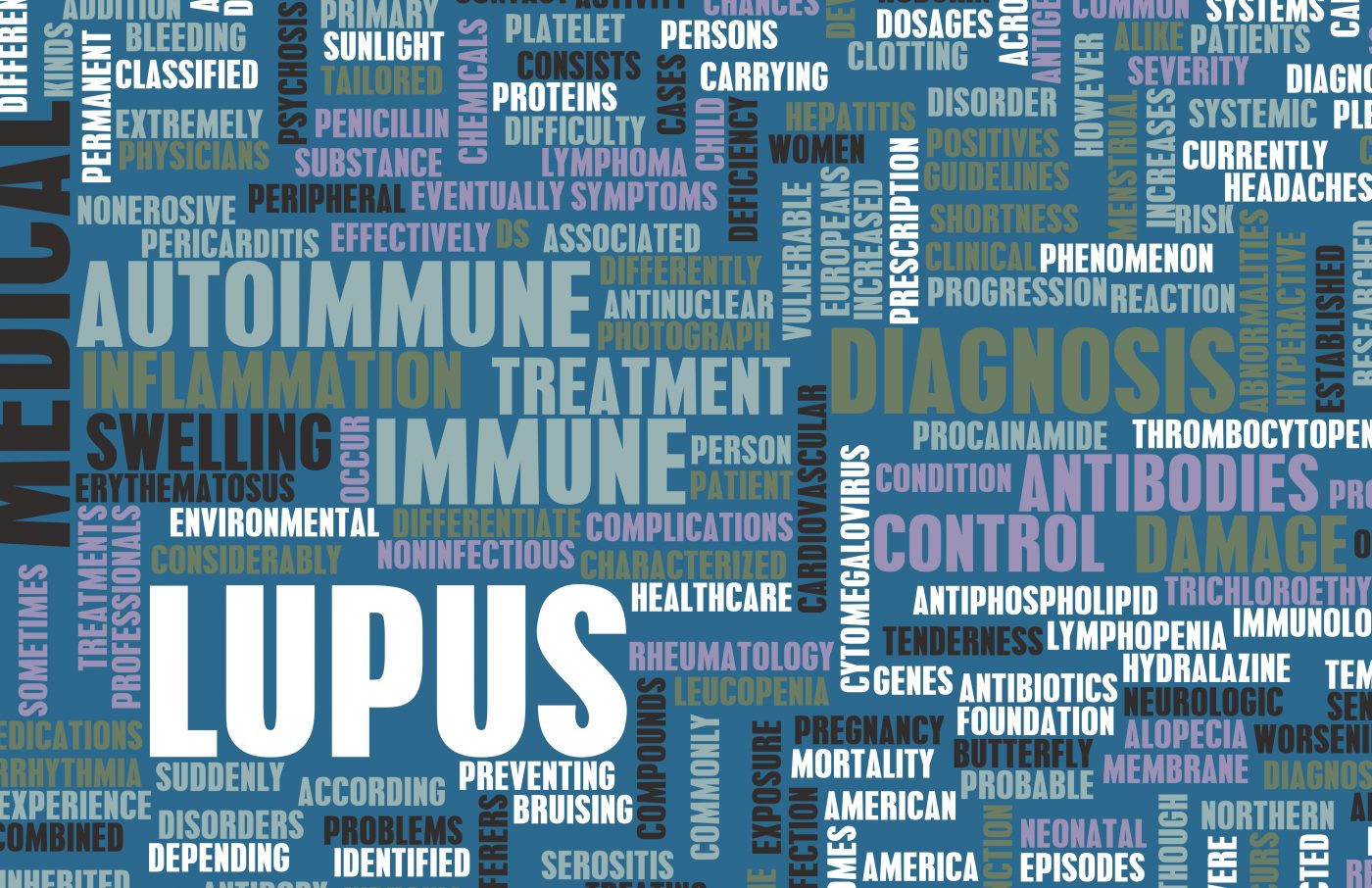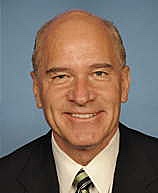NIH’s Action Plan for Lupus to Be Presented to Lawmakers Invited to Washington Briefing
Written by |

 The Alliance for Lupus Research and The Lupus Research Institute, in conjunction with the Congressional Lupus Caucus, are inviting lawmakers to a lunchtime briefing on the “New Action Plan for Lupus Research” recently released by the National Institute of Arthritis and
The Alliance for Lupus Research and The Lupus Research Institute, in conjunction with the Congressional Lupus Caucus, are inviting lawmakers to a lunchtime briefing on the “New Action Plan for Lupus Research” recently released by the National Institute of Arthritis and  Musculoskeletal and Skin Diseases, on behalf of the National Institutes of Health. The meeting will take place March 15 at the Rayburn House Office Building at 45 Independence Ave. SW in Washington, D.C. A box lunch will be served.
Musculoskeletal and Skin Diseases, on behalf of the National Institutes of Health. The meeting will take place March 15 at the Rayburn House Office Building at 45 Independence Ave. SW in Washington, D.C. A box lunch will be served.
Confirmed speakers include:
Rep. William Keating, D-Mass., co-chair, Congressional Lupus Caucus;
Rep. Tom Rooney, R-Fla., co-chair, Congressional Lupus Caucus in a video message;
Stephen I. Katz, M.D., Ph.D., director, National Institute of Arthritis and Musculoskeletal and Skin Diseases (NIAMS) at the National Institutes of Health (NIH);
Stefania Gallucci, M.D., lupus researcher, Temple University’s Lewis Katz School of Medicine;
and Molly McCabe, lupus patient and co-founder of Molly’s Fund Fighting Lupus.
There also will be a video message from National Institutes of Health Director Francis Collins M.D., Ph.D.
The NIH’s research roadmap on lupus was developed in response to a request from the Congressional Lupus Caucus, and builds upon decades of NIH research efforts, yielding a wealth of new information toward improving our understanding of lupus.
Attendees at the lunchtime briefing will learn about priority areas NIH has identified and what this new plan means for both lupus patients and scientists researching the disease. The briefing will be moderated by Margaret G. Dowd, president and CEO of the Lupus Research Institute.
The Congressional Lupus Caucus was established in 2012 by Reps. Rooney, Keating, Ileana Ros-Lehtinen, R-Fla., and Jim Moran, D-Va., to provide a forum for members of Congress and their staff to actively engage in a dialog to help raise visibility of the disease among the public and health professionals. Future caucus efforts will likely be aimed at discussions of actions to improve the quality of life for people with lupus and their caregivers through supporting the advancement of lupus research.
Current Congressional Lupus Caucus co-chairs are Reps. Rooney, Keating, Ros-Lehtinen, and Eddie Bernice-Johnson, D-Texas.
A full list of Congressional Lupus Caucus members can be found at: https://rooney.house.gov/legislation/congressional-lupus-caucus
This caucus also provides an important resource to help policymakers better understand the challenges that lupus patients face in their everyday lives, and the opportunity to learn more about research into the disease, its diagnosis, and treatment. The caucus also offers an important new forum for patients and their advocates to work with congressional leaders.
Lupus is an acute, chronic, currently incurable autoimmune disease in which the immune system malfunctions, causing inflammation and tissue damage that can affect virtually any part of the body, including the skin, lungs, heart, kidneys, and brain. No organ is exempt. The disease can cause seizures, strokes, heart attacks, miscarriages, and organ failure.
The Congressional Lupus Caucus notes that according to the Centers for Disease Control (CDC), by the most conservative estimates at least 322,000 Americans have definite or probable lupus, with recent independent surveys suggesting prevalence may actually be as high as 1.5 million having some form of lupus, which typically strikes people in their prime.
Roughly 80 percent of new cases are diagnosed in women, primarily in their childbearing years between ages of 15 and 44, interfering with the ability to work, have or raise a family, or, in some cases, even care for themselves. However, older women, men, and children can also be affected. Ninety percent of people with lupus are women and yet 80 percent of women know little or nothing about the condition. Lupus is also two to three times more common among African-Americans, Hispanics, Asian-Americans and Native Americans.
Lupus is often misdiagnosed, and an accurate lupus diagnosis can take as long as four or more years with visits to three or more physicians. Currently there are few therapeutic options for this complex, dangerous, and unpredictable autoimmune disease that annually costs the nation an estimated $31.4 billion in direct and indirect expenditures.
The Action Plan for Lupus Research prepared by the National Institute of Arthritis and Musculoskeletal and Skin Diseases (NIAMS) was released in January 2016 and notes that 60 years ago, about 50 percent of people with lupus died within five years of diagnosis. But today, thanks to advances in treatment due to research, 97 percent of lupus patients are living five years after diagnosis, with 90 percent continuing to survive after 10 years.
The report notes that the transformation of lupus from a disease with a high mortality rate to one that is chronic has led to increased need for better therapies for management of long-term symptoms, and that ongoing research could lead to new therapies with fewer side effects.
With the wealth of new information and extraordinary growth in improved understanding of lupus over the past two decades of research, the report says opportunities now exist to identify potential genetic, epigenetic, environmental, and infectious causes of lupus, and to develop novel approaches for lupus treatment and prevention. To help achieve these goals, the NIH places a high priority on cross-disciplinary research and collaborative participation of other government agencies and private organizations in advancing these efforts.
To help facilitate this collaboration, the NIH established the Lupus Federal Working Group (LFWG) in 2003 at the request of Congress. Led by the National Institute of Arthritis and Musculoskeletal and Skin Diseases (NIAMS), the LFWG includes representatives from relevant Department of Health and Human Services (HHS) agencies and other federal departments having an interest in lupus — the National Institute of Allergy and Infectious Diseases; the National Institute of Neurological Disorders and Stroke; the National Institute of Diabetes and Digestive and Kidney Diseases; the National Heart, Lung, and Blood Institute; the NIH Office of Research on Women’s Health; and other agencies of the federal government, including the HHS Office on Women’s Health, the U.S. Food and Drug Administration (FDA), and the Centers for Disease Control and Prevention (CDC). Voluntary organizations and representatives from the private sector also attend and participate in the meetings of the LFWG.
In July 2014, the Congressional Lupus Caucus requested that the NIAMS, which coordinates the LFWG, develop a new coordinated action plan for lupus research on behalf of the NIH. Over the next year, the institute issued two Requests for Information to solicit comments from the public, and held a webinar with external experts and lupus groups to obtain input on research directions that should be included in the coordinated action plan. This document represents a synthesis of input on promising future directions for lupus research, and will help inform priority-setting processes among all lupus-related organizations as well as serve as a guide for investigators as they develop independent approaches to address the numerous scientific opportunities in lupus research.
The Action Plan for Lupus Research can be downloaded at: https://www.niams.nih.gov/About_Us/Mission_and_Purpose/action_plan_lupus.asp
The Lupus Research Institute (LRI), which supports innovative research in lupus, pioneers scientific discovery, and champions scientific creativity in discovering and developing new lupus solutions, leads a coalition of patient advocacy organizations in nationwide outreach, service, and support to alleviate patient suffering.
The LRI was also among 124 organizations of the I Am Essential coalition that sent an open letter to U.S. Health and Human Services (HHS) Secretary Sylvia Burwell expressing the need for nondiscrimination policies in health insurance. The letter voices strong support for patient protections the Obama administration is proposing that insurance companies must include as they develop their 2017 Qualified Health Plans (QHPs), while calling again on the administration to enforce these protections.
In comments on the Draft 2017 Letter to Issuers in the Federally-facilitated Marketplaces, the group thanked Burwell for including statements in past proposed rules and the current Draft Letter to Issuers regarding plan benefit design, and what constitutes discriminatory practices by insurance companies. The groups observe that based on the first three years of reviewing Affordable Care Act (ACA) plans, they have seen little evidence of enforcement.
The March 15 congressional lunchtime briefing will enable lawmakers to make better informed decisions about how to ensure enforcement happens.










